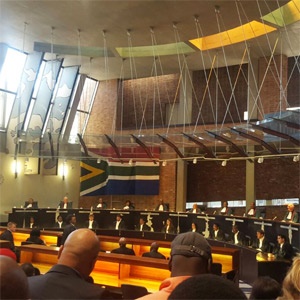
The idea of constitutional supremacy can be one of the most irritating democratic features for post-liberation societies confronted with a legacy of deep inequality and past injustice.
For societies such as South Africa with the need to adopt policies that are aimed at addressing past injustices, having to comply with the Constitution as the supreme law of the land is often seen as a setback for democracy.
Quite often, the solution offered is to amend the Constitution so as to remain within the bounds of the law while pursuing policies that are seen to address our most pressing needs. The debate on land reform in South Africa is a case in point of this.
It is common practice for newer democracies to resort to amending their constitution so that they can address what they consider to be pressing national priorities. In Rwanda, for example, Paul Kagame amended the country's constitution so that he can serve as president for a third term. Indeed, constitutions are not cast in stone; they are living entities that should always reflect the goals and priorities of the society.
This begs the question as to how exactly constitutions should be treated by nations that aspire to liberal constitutional democracies characterised by the rule of law.
It is senseless to adopt constitutions that are easily amendable and nations that aspire to constitutional democracy should avoid amending their constitutions whenever they run into policy difficulties. Again, the case of land reform in South Africa is quite interesting in this regard. Does South Africa's current policy frustration with land reform warrant a constitutional amendment to allow for expropriation of land without compensation? My answer is, no; at least, not yet.
Other means to implement land reform policy without having to amend the Constitution should first be tried. I believe that the public sentiments coming out of public consultation process on this matter also point to the need to implement land reform policy without changing the Constitution.
If South Africa wants to build a society where policy implementation takes place based on the principles and values enshrined in the Constitution, it is important to avoid amending it at the turn of every corner. We cannot change the Constitution to accommodate our policy frustration. Rather, we should seek means to arrive at policy goals without hastily reducing a political problem to a problem with the Constitutional.
Not all political problems should take the form of a constitutional squabble followed by an amendment to the Constitution. If we reduce all our political problems to clashes about the Constitution, we will soon have nothing left of it. Our Constitution will be amended beyond recognition.
Where it is clear that the policy goals cannot be achieved in any other way possible, amending the Constitution may be necessary and justifiable in a society that aspires towards being a constitutional democracy. But society must then first have a sustained conversation and consultation on the matter. By a sustained conversation I am referring to back and forth attempts to consider other ways of implementing policy and a conversation regarding the implications of the amendment on the values enshrined in the Constitution.
Constitutions should not be amended merely on the basis of the whims of the majority. If indeed the majority favours an amendment, such a majority should sustain that position for a period of time before the amendment actually takes place.
Given the fact that constitutions are usually adopted after a lengthy process of negotiation, it should not be easy for societies to walk away from their previous commitments, hence the need to reflect deeply for a sustained period of time before a constitutional amendment takes place. Societies that aspire to constitutional democracy should acknowledge that constitutions are also there for the purpose of restraining the society from adopting quick solutions to their policy frustrations; solutions that may endanger other societal values.
The best way to know if a constitutional amendment is warranted, is if the conversation about the amendment is sustained for a long period of time. What if those who are in favour of an amendment today no longer need it in a year's time? A simplistic response is that an unwanted amendment can always be reversed as long as the majority wishes. But if a constitution can be amended this way, it is no better than a municipal by-law.
Constitutional amendment is not an instrument to cancel out political differences in society. It should be undertaken after a case has been made that the society understands it and is willing to live with its consequences. Those who propose amendment in the interests of the people should spend more time convincing those who doubts their intentions. Nothing short of this can be defended in the spirit of constitutional supremacy.
The idea of constitutional supremacy entails restraints and circumspection when it comes to making changes to the Constitution. As a nation, we cannot claim to believe in the principle of constitutional supremacy while being willing to amend our Constitution as if it is a traffic law. We just cannot have it both ways!
- Ralph Mathekga is a Fellow at the SARChI Chair: African Diplomacy and Foreign Policy at the University of Johannesburg and author of When Zuma Goes and Ramaphosa's Turn.
Disclaimer: News24 encourages freedom of speech and the expression of diverse views. The views of columnists published on News24 are therefore their own and do not necessarily represent the views of News24.




 Publications
Publications
 Partners
Partners

























